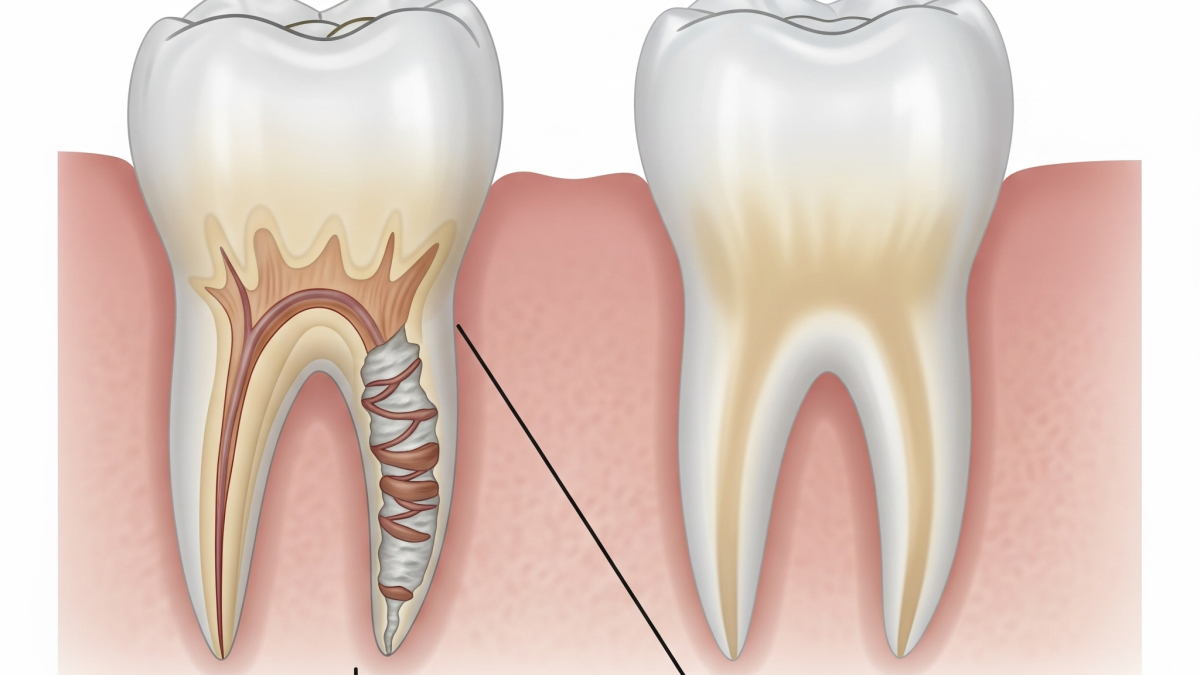- Hook: A child’s smile is precious, and the health of their first teeth, often called “baby teeth” or primary teeth, is more vital than many realize.
- Acknowledge: Pediatric dentistry is a specialized field dedicated to ensuring children develop healthy habits and a strong foundation for a lasting smile.
- Post’s Purpose: This comprehensive guide will explore the importance of pediatric dentistry, detailing why early care is fundamental, what to expect during visits to the children’s dentist, and how parents can promote excellent oral health at home.
Why Are Baby Teeth So Important?
- Essential Functions:
- Chewing and Nutrition: Allow the child to eat and process food properly.
- Speech Development: Contribute to the correct development of speech and pronunciation.
- Guides for Permanent Teeth: Maintain space in the dental arch, guiding the eruption of permanent teeth. Losing a baby tooth too early can lead to misalignment of permanent teeth.
- Aesthetics and Self-Esteem: A healthy smile contributes to a child’s social confidence.
- Myths to Debunk: “They’re just baby teeth, they’ll fall out anyway.” Explain that cavities and infections in baby teeth can affect permanent teeth.
The First Visit to the Pediatric Dentist: When and Why?
- The “First Tooth, First Visit” Rule: The first visit is recommended as soon as the first tooth erupts or, at the latest, by the child’s first birthday.
- Objectives of the First Visit:
- Familiarization: Create a positive experience and accustom the child to the dental environment.
- Parent Education: Guidance on infant oral hygiene, diet, fluoride use, and habits (pacifier, bottle).
- Risk Assessment: Early identification of cavity risks or other problems.
- Prevention: Topical fluoride application, sealants (when appropriate).
- What to Expect: A playful environment, communication adapted to the child, focus on prevention.
Key Concerns in Pediatric Dentistry
- Early Childhood Caries (Baby Bottle Tooth Decay):
- Causes: Prolonged exposure to sugary liquids (milk, juice) in bottles, especially during sleep.
- Prevention: Don’t let the child sleep with a bottle, clean gums and teeth after feedings.
- Dental Trauma:
- Causes: Falls, play, accidents.
- First Aid: What to do in case of a broken or knocked-out tooth.
- Harmful Oral Habits:
- Thumb Sucking and Pacifier Use: Impact on bite development and tooth alignment.
- Mouth Breathing: Consequences for facial development and general health.
- Tooth Eruption: Monitoring the eruption schedule of baby and permanent teeth.
Promoting Oral Health at Home: The Parents’ Role
- Daily Oral Hygiene:
- From Birth: Clean the baby’s gums with a soft cloth or gauze.
- With First Tooth: Brush with a soft toothbrush and fluoride toothpaste (minimal amount, “grain of rice” size).
- Increasing Paste Amount: “Pea-sized” for older children (2-6 years).
- Supervision: Supervised brushing until age 7-8.
- Tooth-Friendly Diet:
- Reduce Sugar: Limit sweets, sodas, processed juices.
- Healthy Foods: Encourage fruits, vegetables, dairy.
- Proper Fluoride Use:
- Fluoridated water, fluoride toothpaste, professional treatments.
- Parental Example: Model good hygiene habits.
- Summary: Pediatric dentistry is essential for establishing an oral health foundation that will last a lifetime.
- Reiterate: Early care, regular visits to the pediatric dentist, and parental collaboration are key to preventing problems and ensuring a healthy, happy smile.
- Empower: Investing in a child’s smile is investing in their overall health and self-esteem.
Related posts
Meet the Author
Welcome to OdontoBlog, your essential source for current dental news and tips. Our goal is to simplify oral health, offering accurate and accessible information.
Popular Posts
Subscribe Now
* You will receive the latest news and updates on your favorite celebrities!


